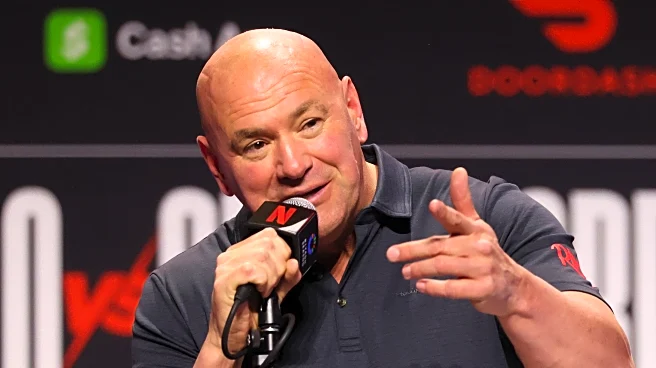UFC CEO Dana White has an answer for every question he’s likely to be asked. Whether you feel like he’s actually answered the question is another matter.
In a new 60 Minutes interview, White once again dodged questions regarding just how much of the new $7.7 billion rights deal with Paramount CBS would make its way to the fighters. The UFC and parent company TKO have shared a lot of facts regarding the new partnership, but any specifics on what it will mean for fighter pay remains murky.
60 Minutes
pressed White on the subject, but he remained as slippery as ever on the subject.
“One question that hounds White: does enough of the UFC’s big money see it’s way to the fighters?” the show’s narration asked. “The big stars can make millions per fight. But the so called bottom-of-the-card fighters are making as little as $12,000. Earlier this year, the UFC settled a class action antitrust lawsuit with fighters for $375 million.”
“Your media rights deal basically doubled,” L. Jon Wertheim asked White. “Is fighter pay going to increase proportionately?”
“I can’t sit here right now and tell you, you know, ‘It’s double. It’s one and a half. It’s triple,'” White replied. “But yeah … fighter pay is — yeah, it’s going to be good.”
“Do you pay fighters a fair wage?” Wertheim asked.
“Absolutely. People don’t know how much a lot of these guys make,” White said.
“If you want to know what LeBron James makes, it’s two keystrokes away,” Wertheim pointed out.
“We’re different in a lot of ways,” White said with a smile. “We’re different than most major sports.”
While top fighter pay is a well kept secret, there’s no secret as to how poorly paid new fighters arriving in the UFC are paid. 60 Minutes noted the $12,000 to show and $12,000 to win deal meant half the fighters competing would walk away with just $12,000. A fighter that goes 1-1 in their first year with the promotion would make just $36,000 before taxes and expenses … roughly the same amount as a full time McDonalds fry cook (who doesn’t have coaches or a manager to pay).
Also not a secret: the general amount of revenue that makes its way to fighters. The UFC antitrust lawsuit showed how the company kept fighter pay as a percentage of revenue locked in around 19% from 2011 to 2017. A second antitrust lawsuit covering the past eight years is likely to show that hasn’t changed much.
Should fighters be happy that they’ll continue to get 19% of a growing pie? We’d be happy if we stopped hearing horror stories from UFC athletes admitting they ended up down to thirteen bucks and change in between fights. At UFC Perth, a fighter said he took a $100,000 loan so he could afford to compete for the promotion.
The UFC should be embarrassed by stories like this, but at this point the low fighter pay has become one of the key selling points of TKO stock. No wonder Dana White smiles whenever he says UFC fighter pay is good.
















